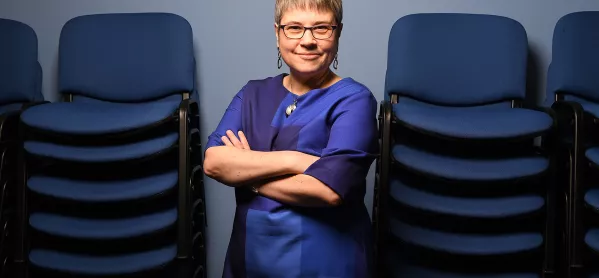Lifting a cap on teachers’ working hours could make it harder for schools to recruit and retain staff, an education research chief has warned.
The Department for Education has reportedly been exploring getting rid of the cap on the amount of time that teachers can be directed to work, which currently stands at 1,265 hours per academic year.
News: Meet the educational research chief who is in awe of schools
Workload: School staff leaders reject scrapping teacher hours cap
Nadhim Zahawi: White Paper on ‘illiteracy’ in the new year
School staff union leaders have criticised the controversial idea, which was reported in the Guardian.
Now, Carole Willis, chief executive of the National Foundation for Educational Research (NFER), has said that any change to teachers’ directed time needs to be considered “carefully”.
Speaking to Tes at the Conservative Party conference in Manchester, Ms Willis said: “On the 1,265 teaching hours, I think the key thing to say is those are directed hours and they work out to about just over 30 hours a week.
Teachers ‘already have unmanageable workload’
“Our research, study after study, shows that teachers are working around 50 hours a week in term time - more hours in term time than any other professional group - so extending that directed time would need to look very carefully at how it might affect the overall hours teachers are working.
“And there’s a question about whether there’s a need to do it, given the current long hours teachers are working.”
She added: “But the main problem is unmanageable workload is the main reason teachers give for leaving the profession, so adding anything that potentially adds more to their working days is a problem.”
Asked by Tes if lifting the cap would create problems for teacher retention, Ms Willis said: “Quite possibly, particularly as the economy picks up and if it means an extension to their overall working hours. So it is a worry.”
She added that it could also impact on recruitment.
In April, teachers at the annual conference of the NEU teaching union voted to reduce high levels of workload in schools after hearing how it had been “exacerbated” by the Covid pandemic.
And in February, a YouGov poll for Ofsted revealed that 86 per cent of teachers felt that remote learning had increased their workload.
In a pre-pandemic study of 2019, by the Department for Education, 76 per cent of secondary teachers and 70 per cent of primary teachers said their workload was unachievable within their contracted hours.




